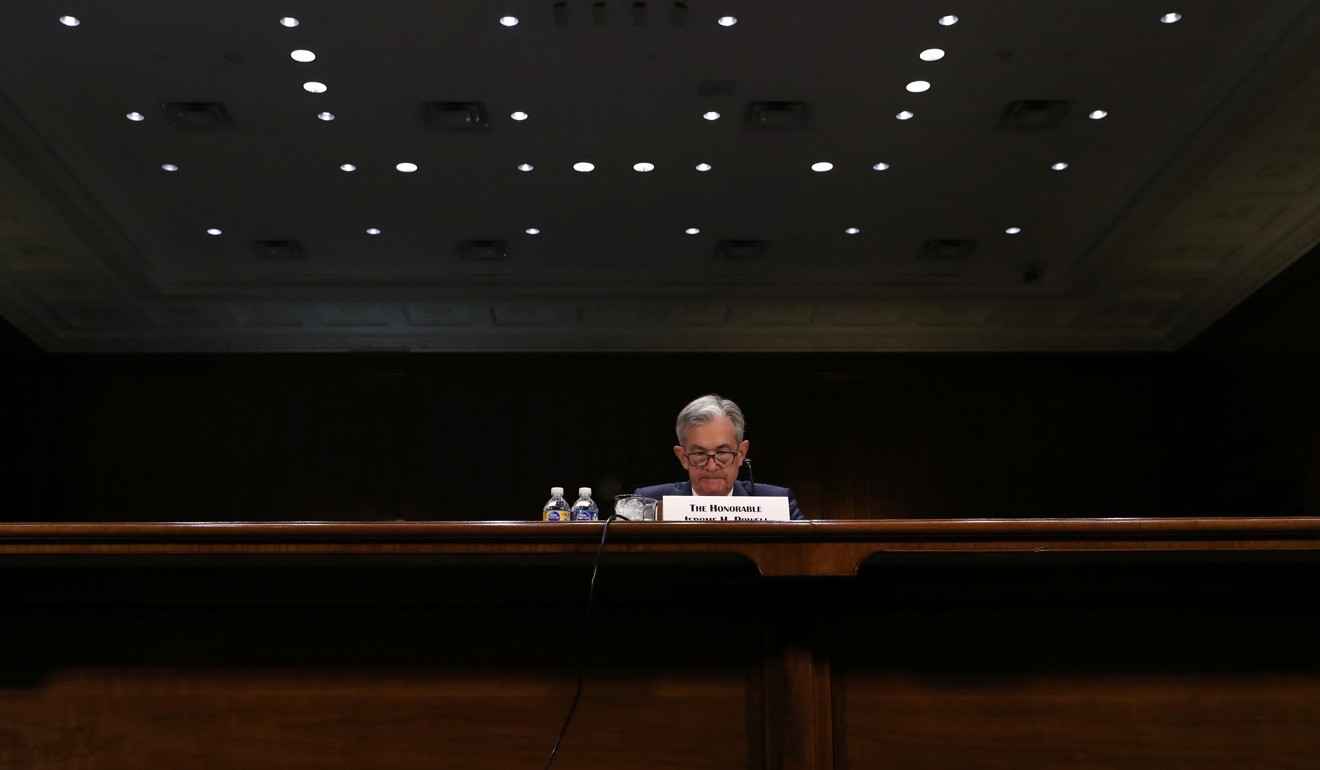Trade war, rate cuts, huge deficits – Trump gets away with it thanks to the US’ ‘exorbitant privilege’
- Globalised finance means capital flows into the US in times of uncertainty, even when the US causes that instability. Investors should question whether the US’ budget-busting is sustainable

In 1965, the finance minister of France, Valéry Giscard d’Estaing, fumed about the “exorbitant privilege” America enjoyed in the global economy because of the advantage conferred on the country and its companies by the dollar’s status as the world’s reserve currency.
Fast forward nearly 55 years, and the US dollar still reigns supreme. What has changed, however, as financial markets have become globalised, is the propensity of large amounts of capital to flow to the US during periods of uncertainty, even if the source of that uncertainty lies in America itself.
One of the most vivid examples of this was the market reaction to the unprecedented decision in 2011 by Standard & Poor’s, the credit rating agency, to downgrade America’s sovereign debt. No sooner did S&P strip the US of its coveted triple-A rating than investors piled into Treasury bonds, which act as the benchmark for government and corporate borrowing costs the world over.
The special privilege enjoyed by America has been even more apparent since Donald Trump assumed the presidency. Not only has the former real estate mogul launched a dangerous trade war, he has shifted US politics in a much more nationalist direction and introduced massive tax cuts that have led to a further deterioration in America’s precarious public finances.
Yet, since Trump’s inauguration in January 2017, the S&P 500 equity index has surged 31 per cent, compared with an 11 per cent rise for the MSCI All Country World Index ex US, a gauge of stocks excluding American shares. What is more, the benchmark 10-year Treasury yield has fallen 40 basis points to just above 2 per cent. Indeed, since the trade war escalated sharply in April 2018, the Bloomberg dollar index – a measure of the greenback’s performance against a basket of other currencies – has gained 9.5 per cent.
The outperformance of US assets is striking given the mounting strains on America’s policy regime since Trump was elected.
The most important is the sudden erosion of the liberal, rules-based world order that the US itself created.
Under Trump, America has turned against the multilateral trading system it had long championed and has picked a fight with a country many believe will be the world’s dominant power in the next few decades. That the US-China trade conflict is merely a skirmish in a much larger technology war raises the stakes significantly for US equity markets.
As DataTrek Research, a US consultancy, points out, after last year’s reclassification of sectors in the main global stock indices, the technology industry’s real weighting in the S&P 500 is 31 per cent – rather than the official 22 per cent – comparable with the 29 per cent for the main, China-led emerging markets index. Trump’s protectionist policies have already caused sharp sell-offs in tech shares and are putting at risk the main driver behind the outperformance of US stocks.
The president is also exploiting the exorbitance of US privilege in his administration’s fiscal policies.
Under Trump, the combination of huge, unpaid-for tax cuts and spending increases has raised America’s budget deficit to 4.6 per cent of gross domestic product, or close to US$1 trillion. The Committee for a Responsible Federal Budget, a non-partisan think tank, notes that “never in modern US history have deficits been so high outside a war or recession (or their aftermath)”.
Yet Trump is in denial, encouraged by historically low interest rates. While a fiscal crisis in America is unlikely any time soon – mainly because investors have yet to question the country’s creditworthiness – the prospect of another six years of deficit-busting policies under Trump could cause markets and rating agencies to doubt the sustainability of the nation’s public debt.
A third area where growing concerns about American policy are not adequately reflected in asset prices, mainly because of the US’ unique advantages, is monetary policy.

Since the end of last year, the Federal Reserve has flip-flopped, pledging to keep raising interest rates as recently as December, only to reverse course weeks later by putting its rate-hiking campaign on hold. Moreover, the Fed’s U-turn stems almost entirely from economic weaknesses abroad, and comes at a time when its independence is being questioned because of Trump’s insistent calls for looser policy.
On Wednesday, Fed Chairman Jerome Powell was at pains to explain why the central bank cut rates by 25 basis points – less than what bearish bond traders had hoped for, but at odds with an economy that is strong enough to warrant keeping rates on hold. The first US rate cut since the global financial crisis has backfired spectacularly. The Fed has managed to disappoint (and confuse) investors, undermine its own credibility and encourage Trump to continue berating the Fed.
Put all these vulnerabilities together – protectionism, fiscal profligacy and a Fed that is losing credibility – and it should be clear to investors that US sovereign risk is being underpriced.
Still, as long as American privilege remains exorbitant, US policymakers – and Trump in particular – will continue to get away with murder.
Nicholas Spiro is a partner at Lauressa Advisory